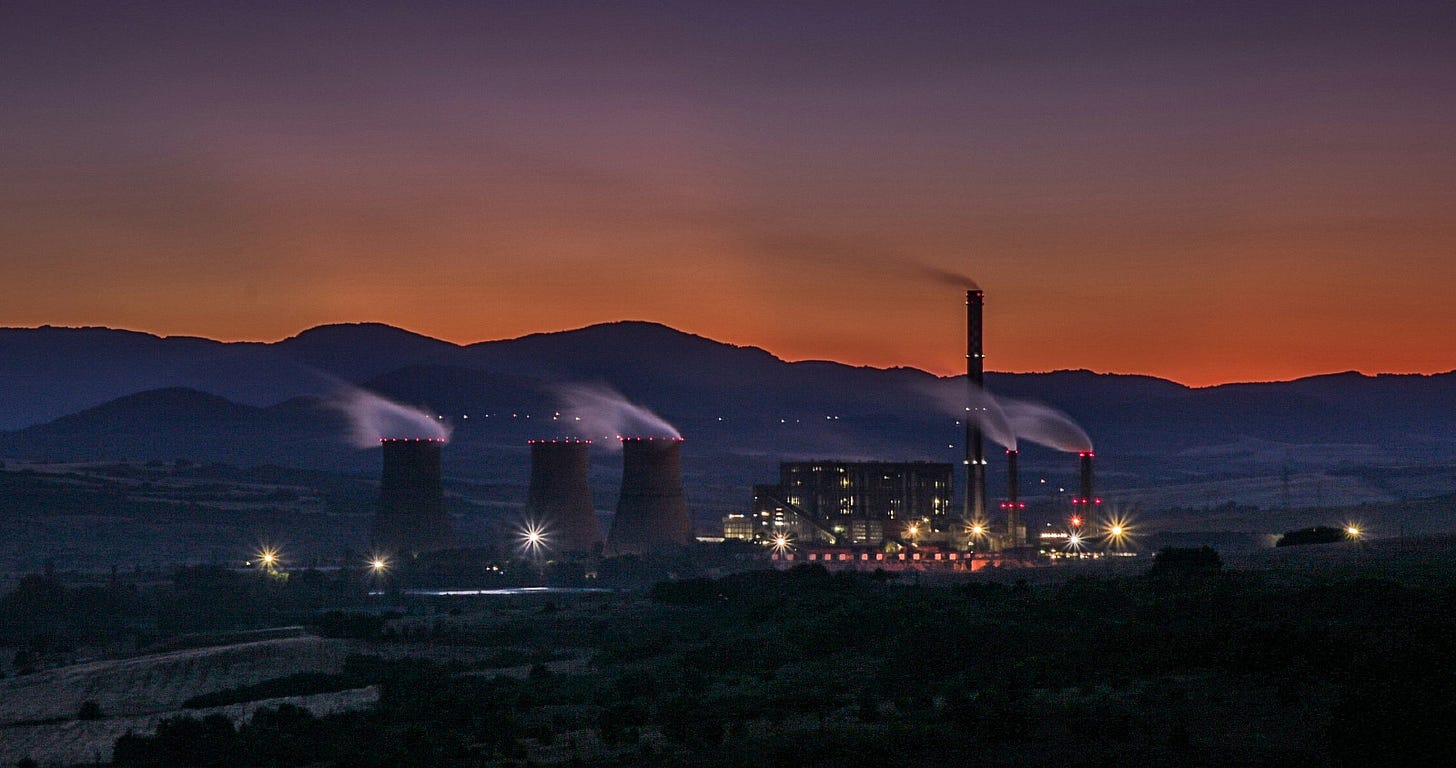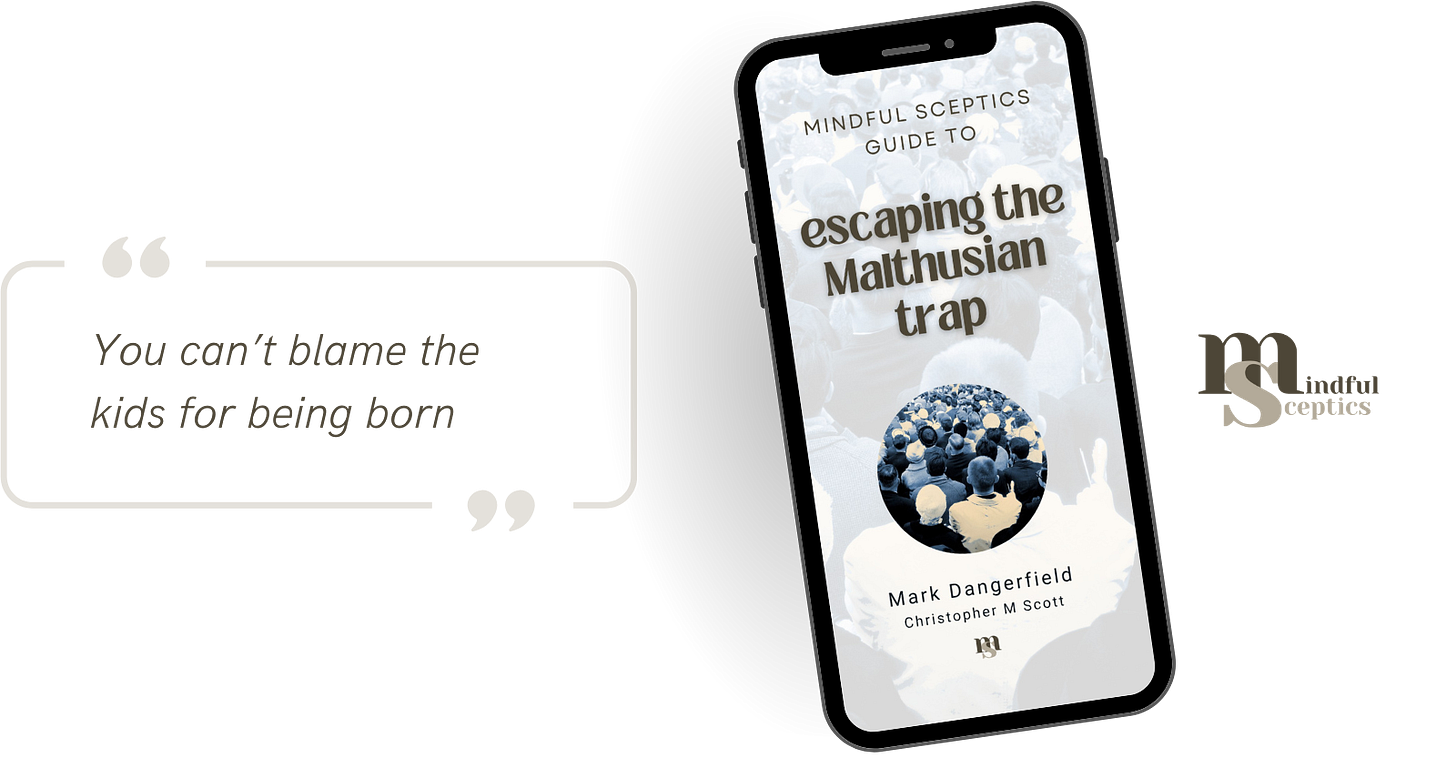What Fossil Fuels Did To Humanity
Learn why your morning coffee uses more energy than ancient humans used in a week. Understanding our fossil fuel reality shapes our shared future.
For 290,000 years, humans meandered along in small tribes, hunting and gathering just enough to survive.
Then something extraordinary happened.
In a blink of evolutionary time—roughly 200 years—we transformed from scattered bands of a few million into a global civilization of 8 billion souls.
This unprecedented surge is often called the Great Acceleration.
Most explain it through economics, technology, or human ingenuity. But as an ecologist who spent years studying population dynamics, I see something simpler and more fundamental… it was all about energy.
Exogenous energy, to be precise.

Let me explain why this matters to you.
You reach for your phone every morning, grab breakfast from your refrigerator, or commute to work.
Each action taps into an energy stream that would astound your great-grandparents.
In 1900, the average family took two months to consume what we now use in a day.
Think about your morning coffee. The beans grew in Colombia, were shipped across oceans, roasted in a factory, and trucked to your local store. Your electric grinder and coffee maker transformed them into your daily brew.
That single cup represents more energy use than our ancestors could access in a week of foraging on the savannas.
Rather than jump to the negativities in this reality, consider the achievement.
Modern humans broke old energy constraints by tapping into ancient sunlight stored as fossil fuels. Coal, oil, and natural gas gave us an unprecedented energy pulse that changed everything. Not just population growth but every aspect of modern life—from global supply chains to instant digital communication.
We currently use more energy in a year than humanity did in its first 100,000 years combined. Our teenagers send more digital information in a week than an entire country could transmit in 1950. The device you're reading this on required at least 70 of the 83 stable elements of the periodic table to manufacture. The energy needed to mine, refine, and assemble these materials comes primarily from fossil fuels.
The graph of human energy use shows a dramatic spike—like a heart monitor during a cardiac event. The question isn't whether this spike can continue forever (it can't) but what comes next.
This isn't just academic theory. It affects every aspect of our lives and futures.
Right now, over 3.3 billion people live on less than $10 per day. Do they deserve access to the benefits this energy surplus has provided others?
Yet, we face the hard truth that our current energy system cannot sustainably expand to serve everyone.
This is why energy use matters.
Even if some bright young thing invents a clean, ubiquitous and cheap alternative to fossil energy, there are not enough resources to manufacture the goods people want nor the thermodynamic sink to cope with the waste.
What fossil fuels did to humanity was to put us in a bind.
It’s as though we can do too much, and in doing so, we risk everything.
As a mindful sceptic, I see both the marvel of human achievement and the challenges ahead. We've accomplished something unprecedented in Earth's history—harnessing enough energy to transcend our ecological constraints.
But what worked for 200 years cannot work for the next 200.
The solution isn't to deny progress or romanticise the past. Instead, we must understand how we got here to chart a wise path forward. The Great Acceleration isn't just history; it's the context for every significant challenge, from climate change to inequality.
Want to dig deeper into this crucial story?
The Mindful Sceptic newsletter thoroughly explores these themes, examining how ecology shapes our past, present, and possible futures. We cut through doom-laden predictions and blind optimism to understand what this remarkable period means for humanity's next chapter.
Join us in asking the questions that matter…
How can we transition to sustainable energy systems while ensuring everyone benefits?
What comes after the Great Acceleration?
Most importantly, how can we be mindful sceptics in a world of rapid change?
Subscribe to The Mindful Sceptic newsletter for weekly insights into humanity's greatest challenges and opportunities.
Together, we'll explore not just what happened but what comes next.
You could also try this Mindful Sceptic Guide…






